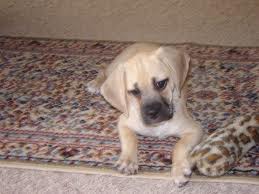
91 posts
• Page 4 of 4 • 1, 2, 3, 4
How do YOU say draugr?

-

Silencio - Posts: 3442
- Joined: Sun Mar 18, 2007 11:30 pm
I call them an excuse to play with fire
Awesome!
-

James Rhead - Posts: 3474
- Joined: Sat Jul 14, 2007 7:32 am
This thread needs less text and more audio.
-

Matthew Barrows - Posts: 3388
- Joined: Thu Jun 28, 2007 11:24 pm
This thread needs less text and more audio.
Thank goodness for Scratch 'N Listen™ technology! For the correct pronunciation of Draugr, please use any very sharp object available to you to scratch this turtle:

-

Oscar Vazquez - Posts: 3418
- Joined: Sun Sep 30, 2007 12:08 pm
Thank goodness for Scratch 'N Listen™ technology! For the correct pronunciation of Draugr, please use any very sharp object available to you to scratch this turtle:

Lol, sweet. How'd you know I'm on an iPad? *scratch*
-

Frank Firefly - Posts: 3429
- Joined: Sun Aug 19, 2007 9:34 am
I say it how the norse would have said the same word: drog, which should rhyme with dog. The first r would "roll", like it would in Spanish, and the r at the end is silent.
-

Ben sutton - Posts: 3427
- Joined: Sun Jun 10, 2007 4:01 am
I say it how the norse would have said the same word: drog, which should rhyme with dog. The first r would "roll", like it would in Spanish, and the r at the end is silent.
We have a winner!
from http://answers.yahoo.com/question/index?qid=1006032806369
Based on the rules of Old Norse pronunciation it would be "drog," rhyming with dog, with a trilled R. The R would be as in Spanish or Southern German - like a drum roll with the tip of your tongue against the roof of your mouth. The final R is silent, according to the rules.
From http://en.wikipedia.org/wiki/Draugr
A draugr, draug or (http://en.wikipedia.org/wiki/Icelandic_language) draugur (original http://en.wikipedia.org/wiki/Old_Norse_grammar draugar, as used here, not "draugrs"), or draugen (http://en.wikipedia.org/wiki/Norwegian_language#Nouns, http://en.wikipedia.org/wiki/Swedish_language and http://en.wikipedia.org/wiki/Danish_language, meaning "the draug"), also known as aptrgangr ("afturg?ngur" in modern icelandic) (literally "again-walker", or "one who walks after death") is an http://en.wikipedia.org/wiki/Undead creature from http://en.wikipedia.org/wiki/Norse_mythology. The original http://en.wikipedia.org/wiki/Old_Norse_language meaning of the word is http://en.wikipedia.org/wiki/Ghosts_in_European_culture, and older literature makes clear distinctions between sea-draug and land-draug. Draugar were believed to live in the graves of the dead, with a draugr being the animated body of the dead. As the http://en.wikipedia.org/wiki/Grave_%28burial%29 of important men often contained a good amount of wealth, the draugr jealously guards his treasures, even after http://en.wikipedia.org/wiki/Death.
-

Elizabeth Lysons - Posts: 3474
- Joined: Fri Feb 02, 2007 7:16 am
Drow-ger...
Im now going to start pronouncing it 'Drog' without the r at the end however because according to a source, that is how it would actually be said in Old Norse
http://answers.yahoo.com/question/index?qid=1006032806369
Im now going to start pronouncing it 'Drog' without the r at the end however because according to a source, that is how it would actually be said in Old Norse
http://answers.yahoo.com/question/index?qid=1006032806369
-

Nathan Maughan - Posts: 3405
- Joined: Sun Jun 10, 2007 11:24 pm
91 posts
• Page 4 of 4 • 1, 2, 3, 4

